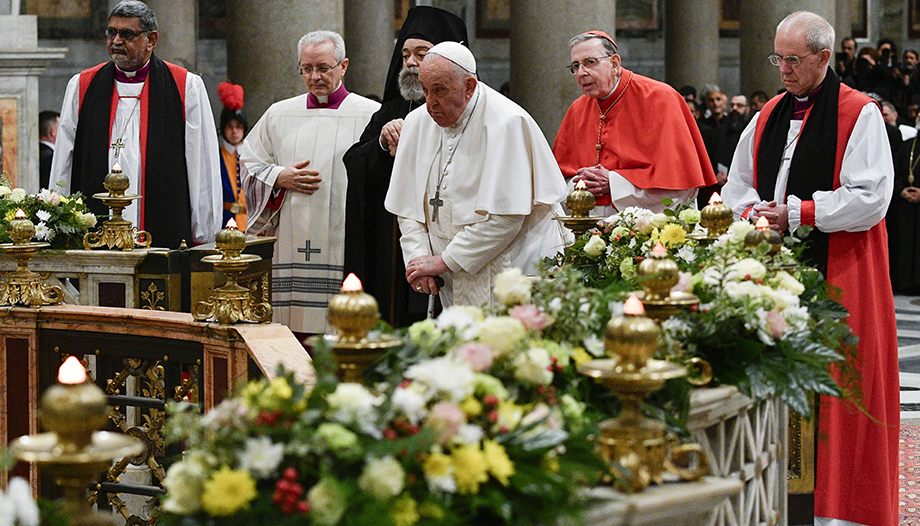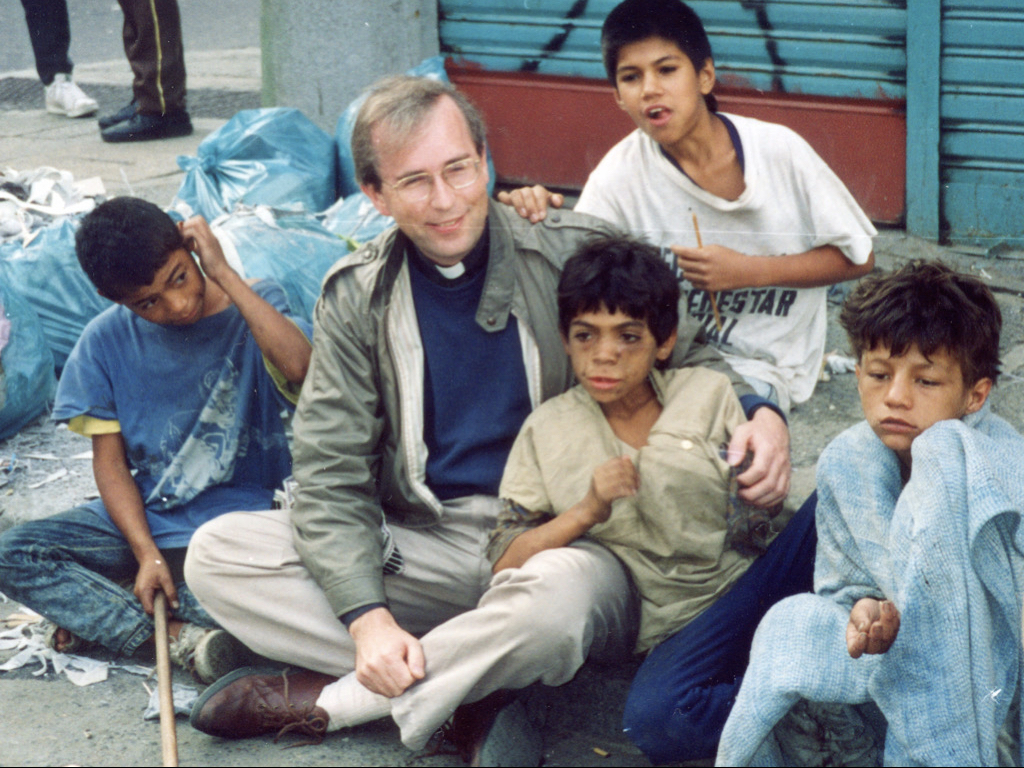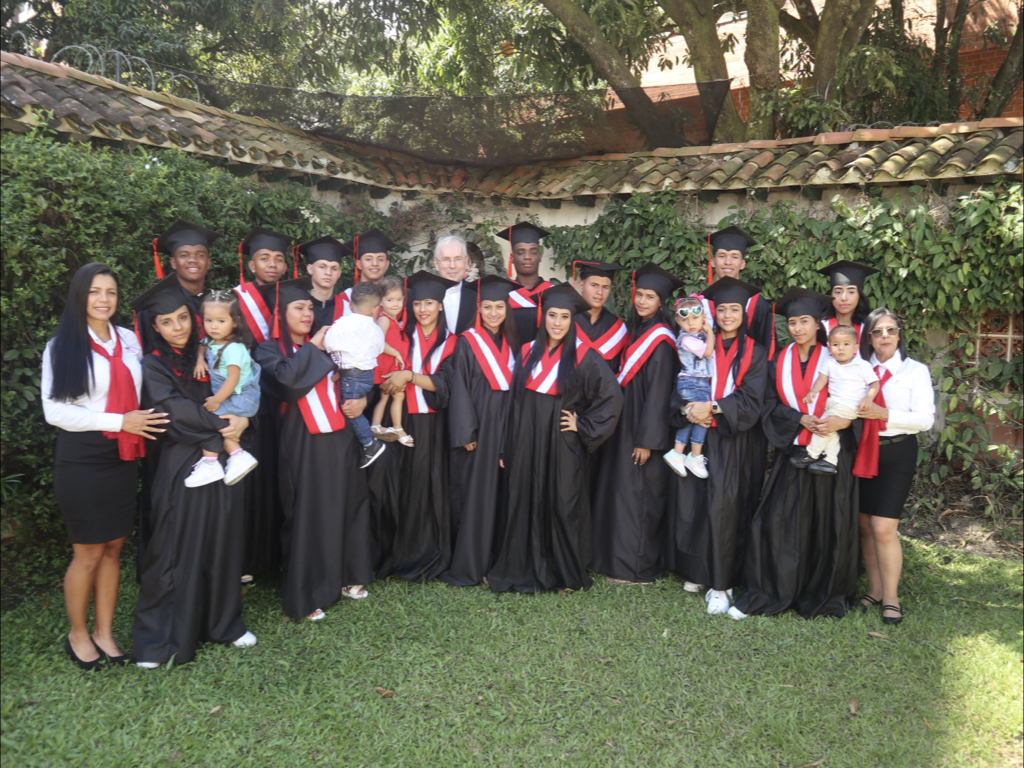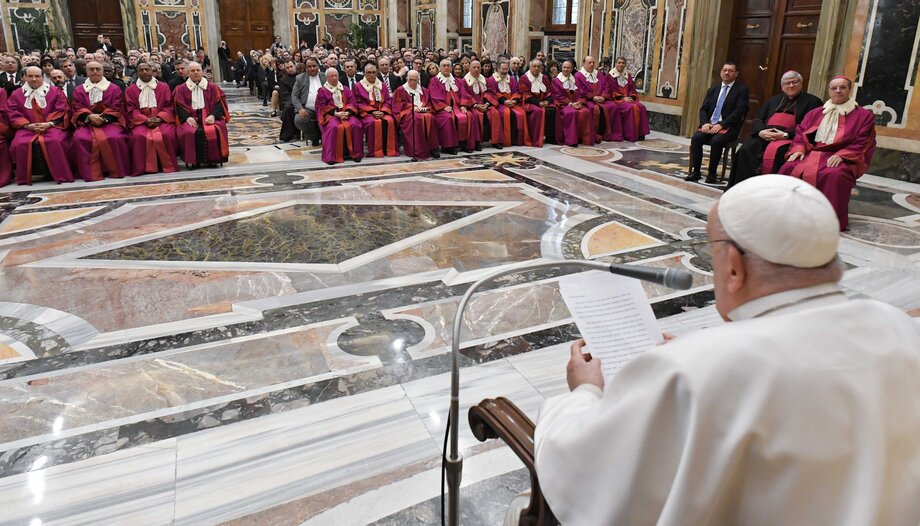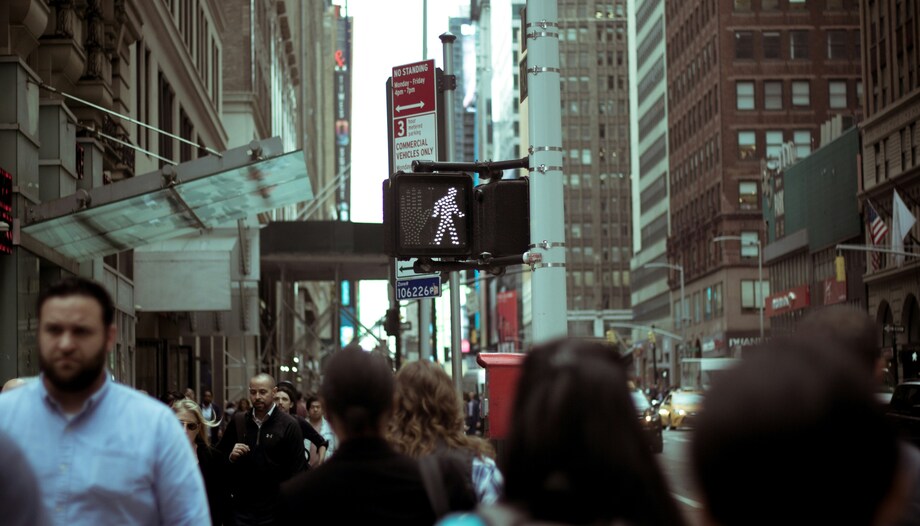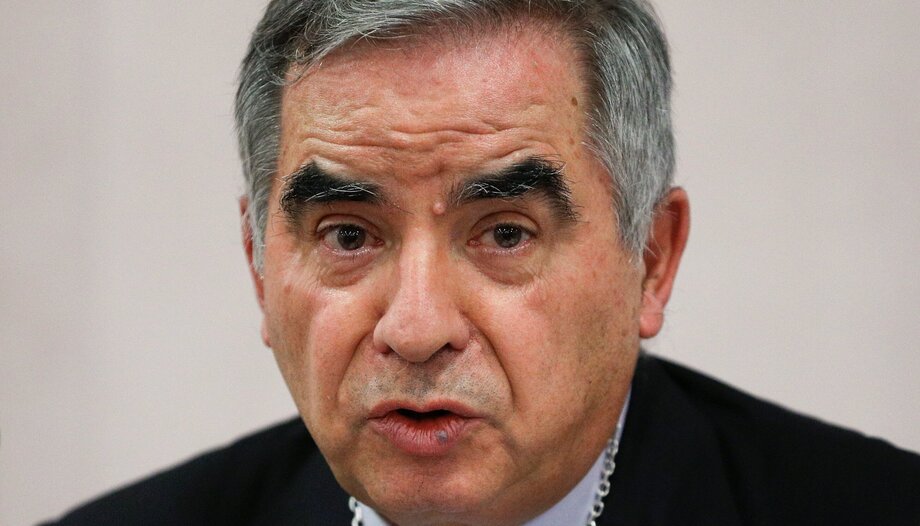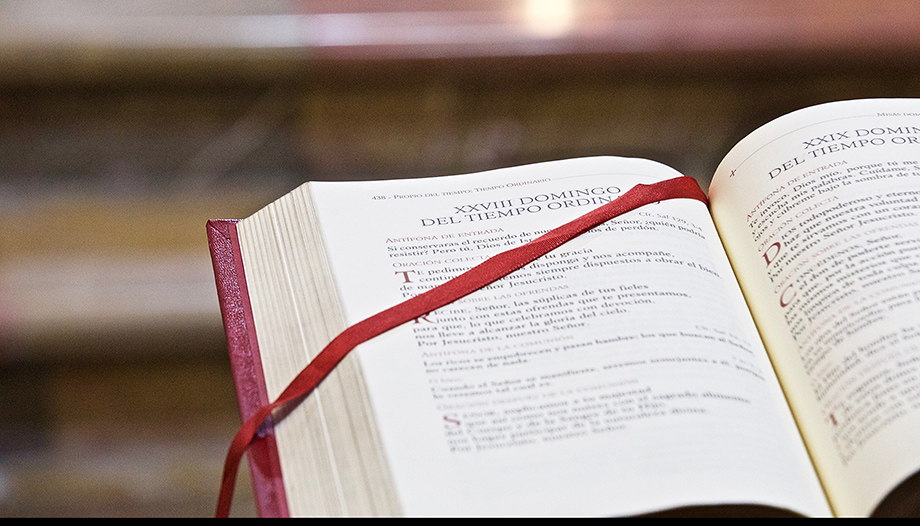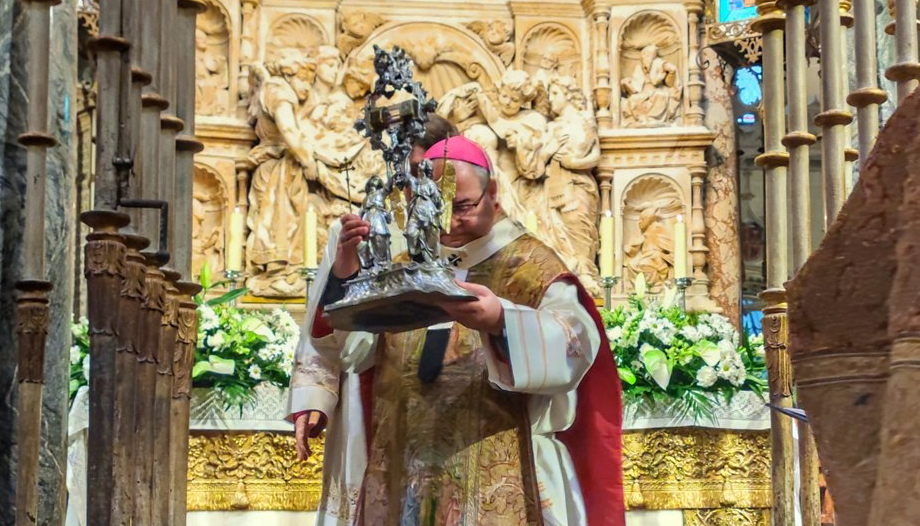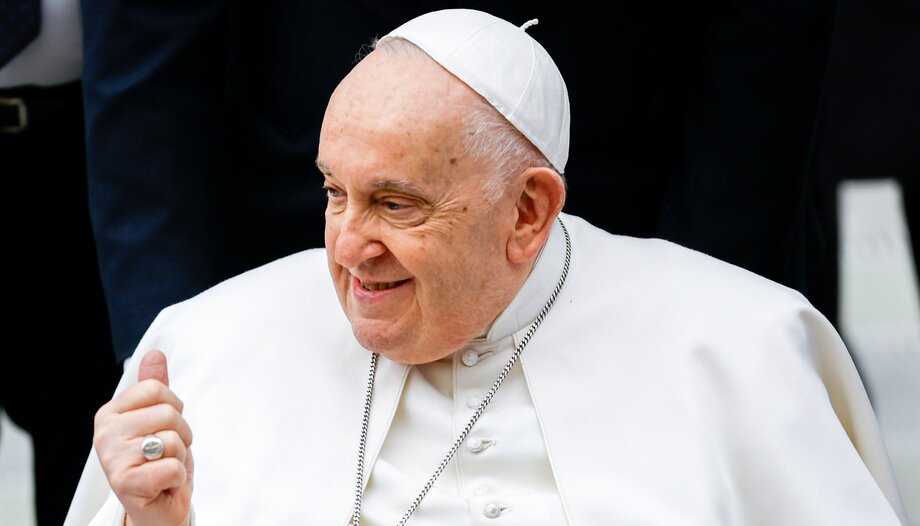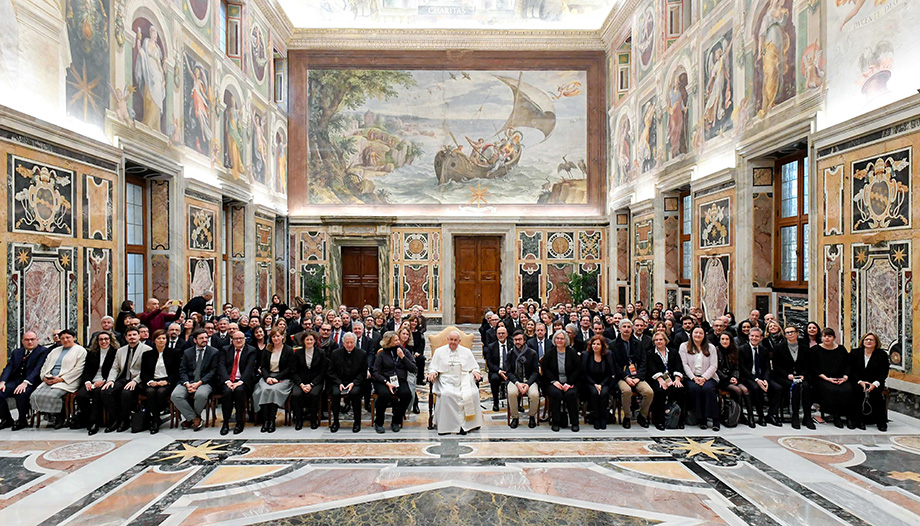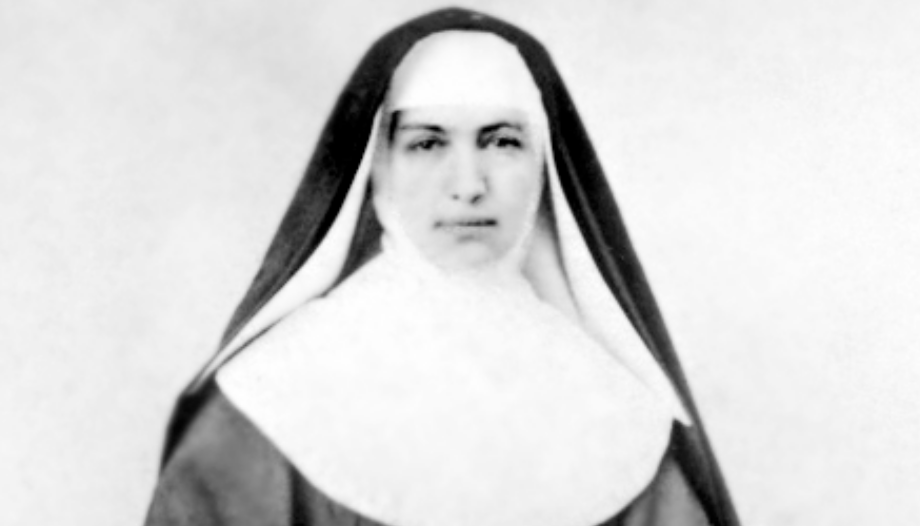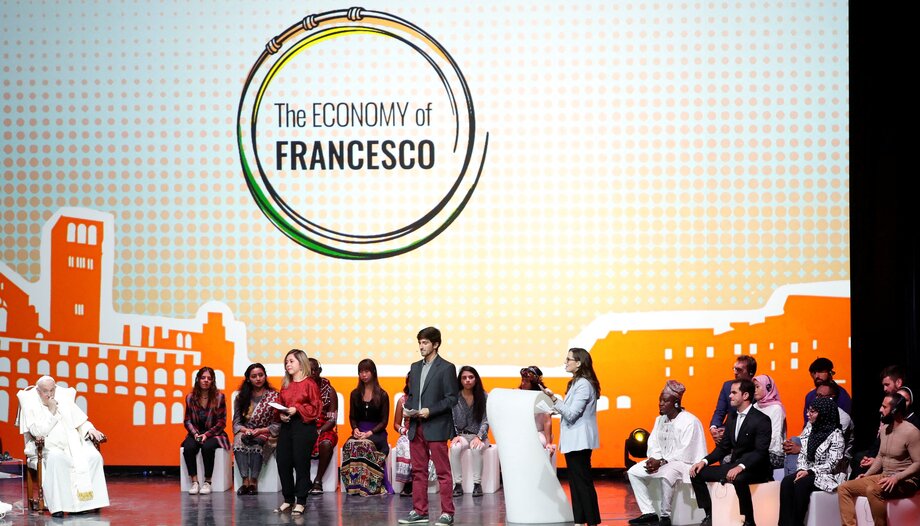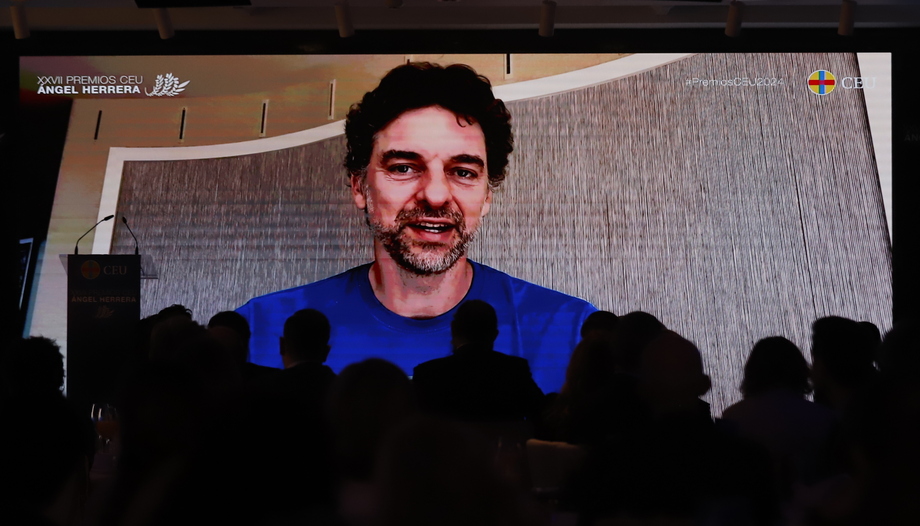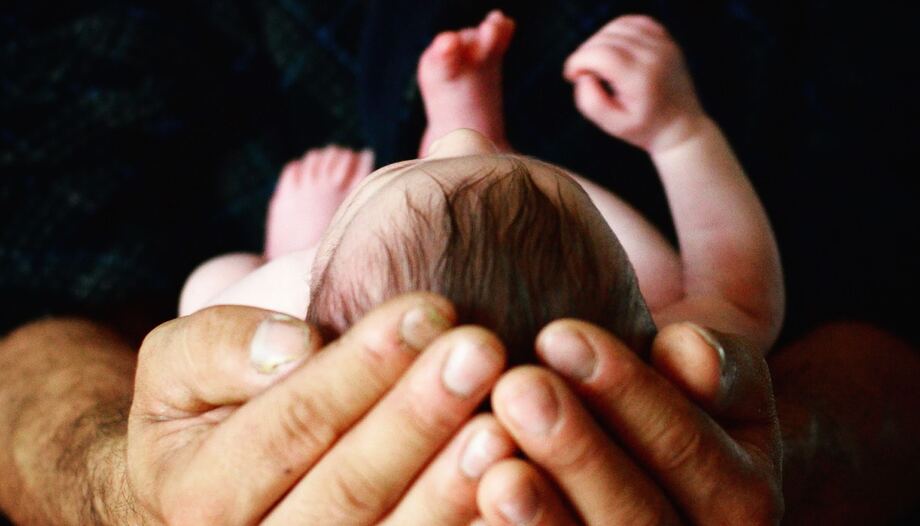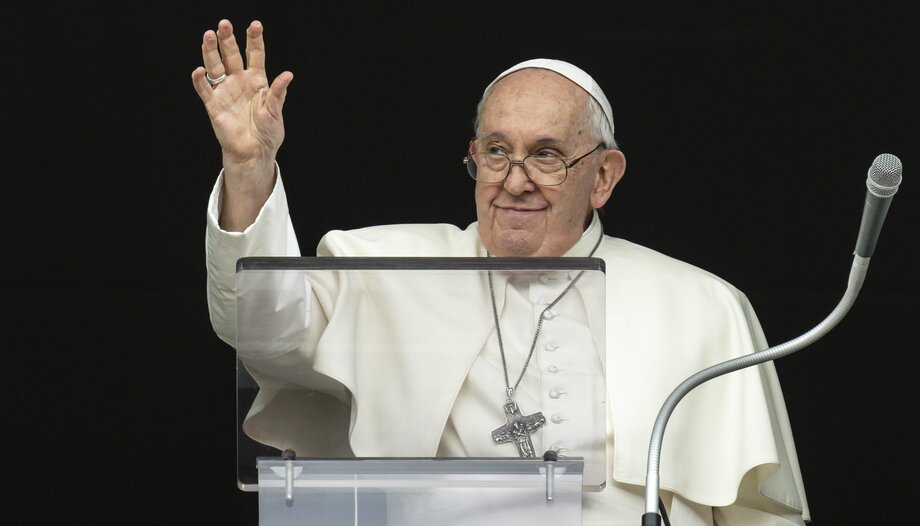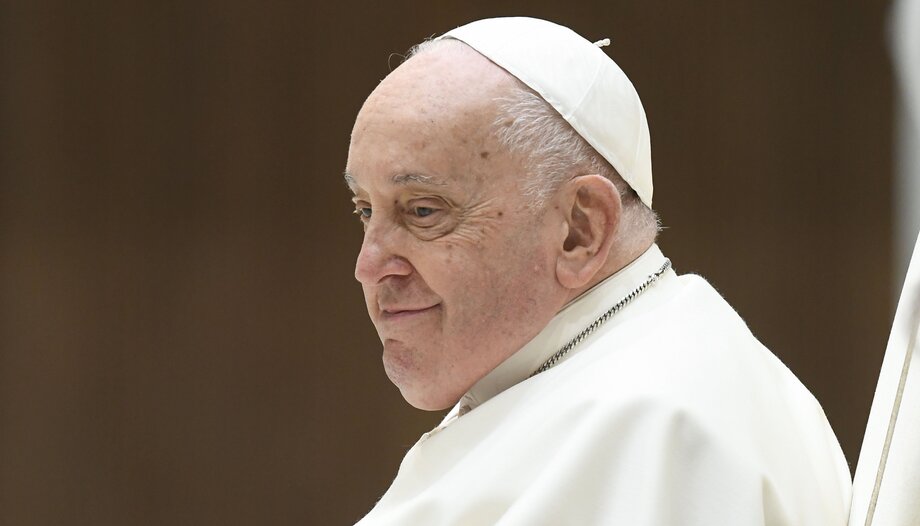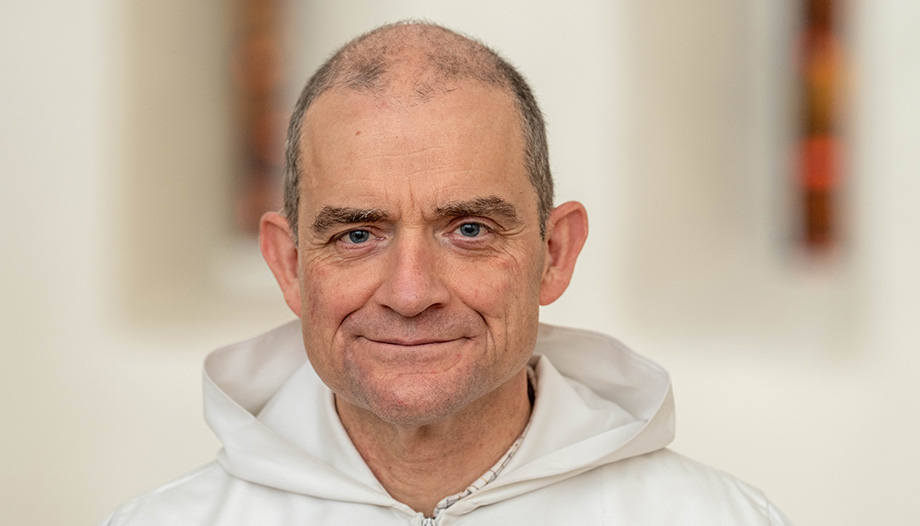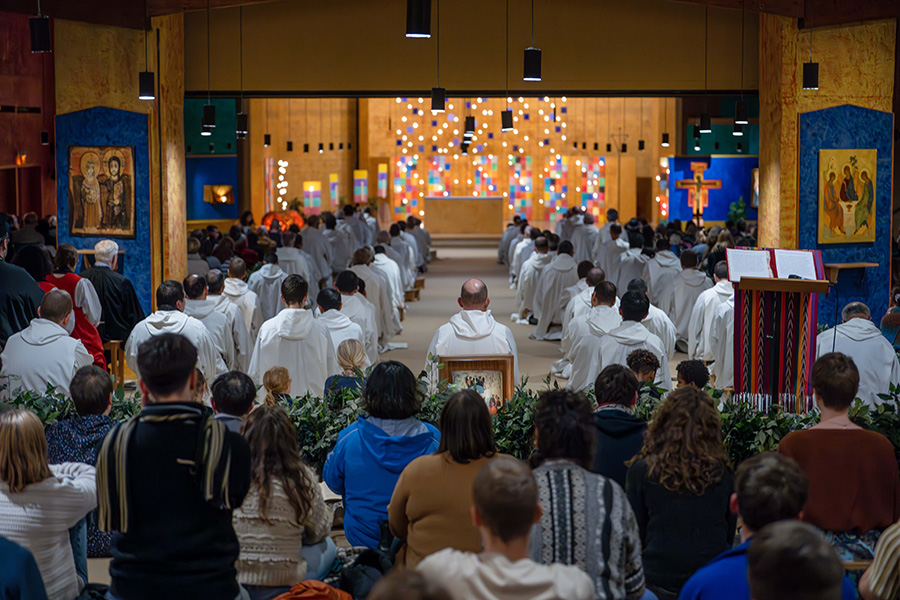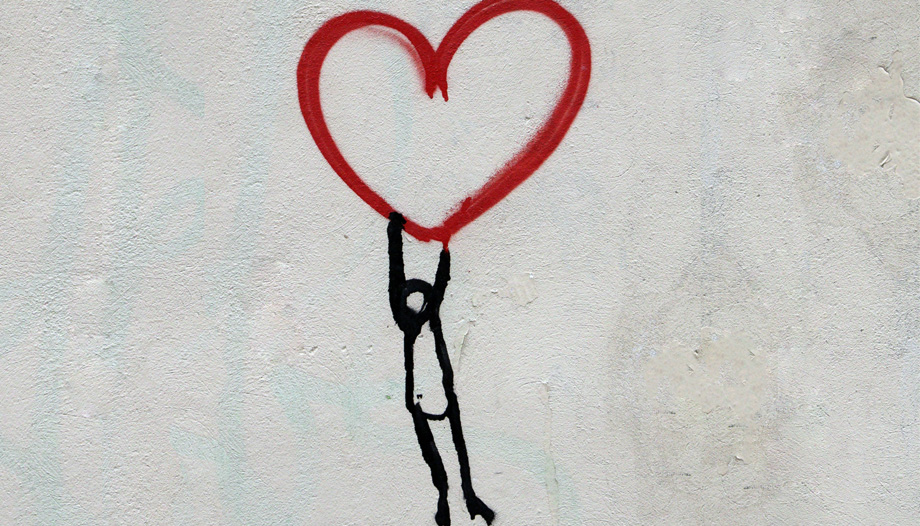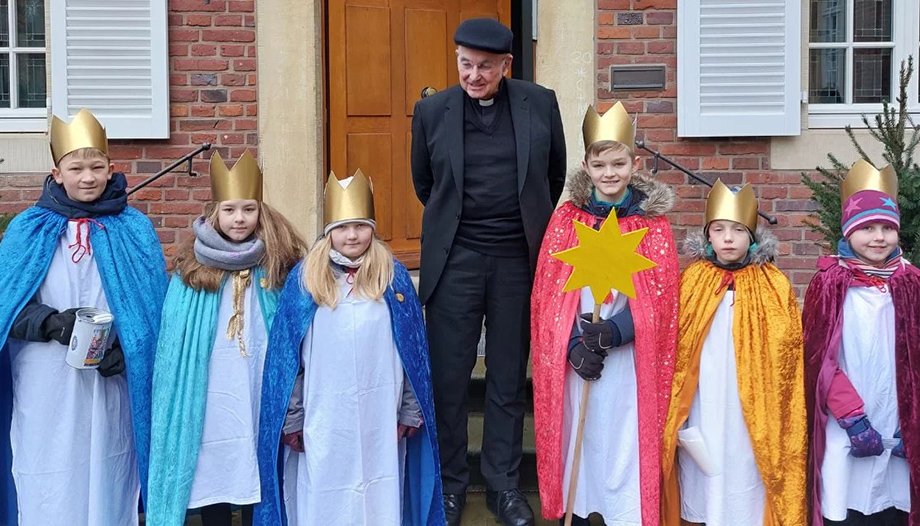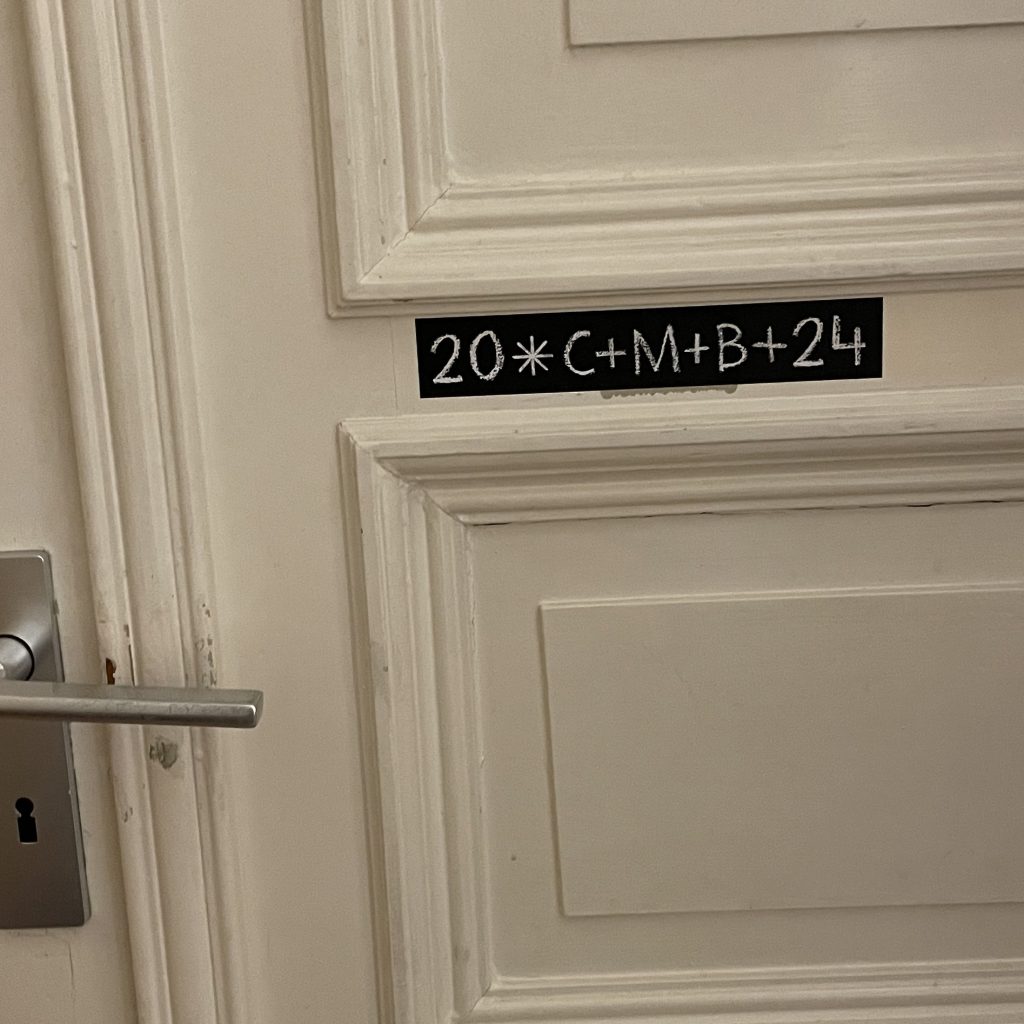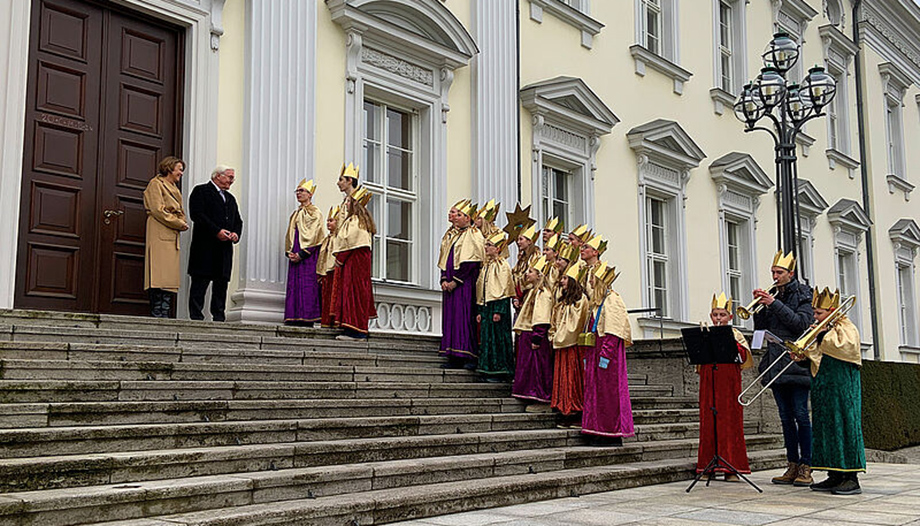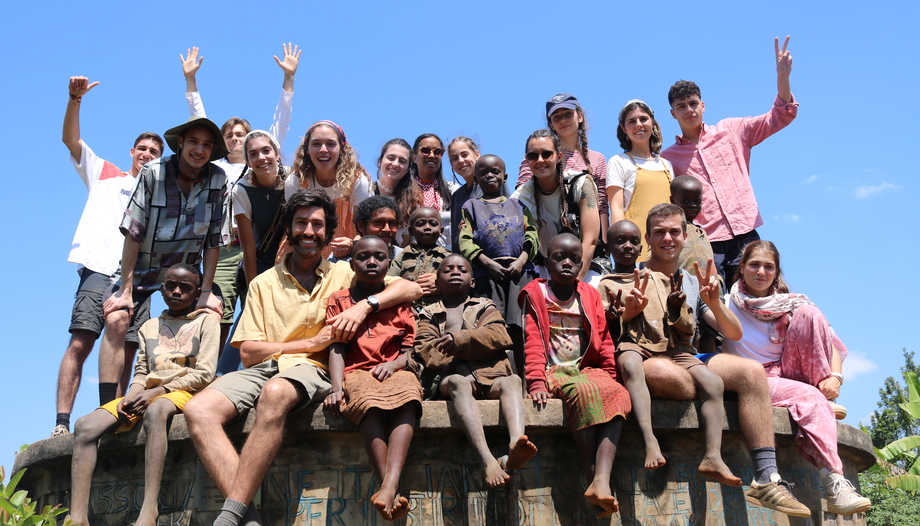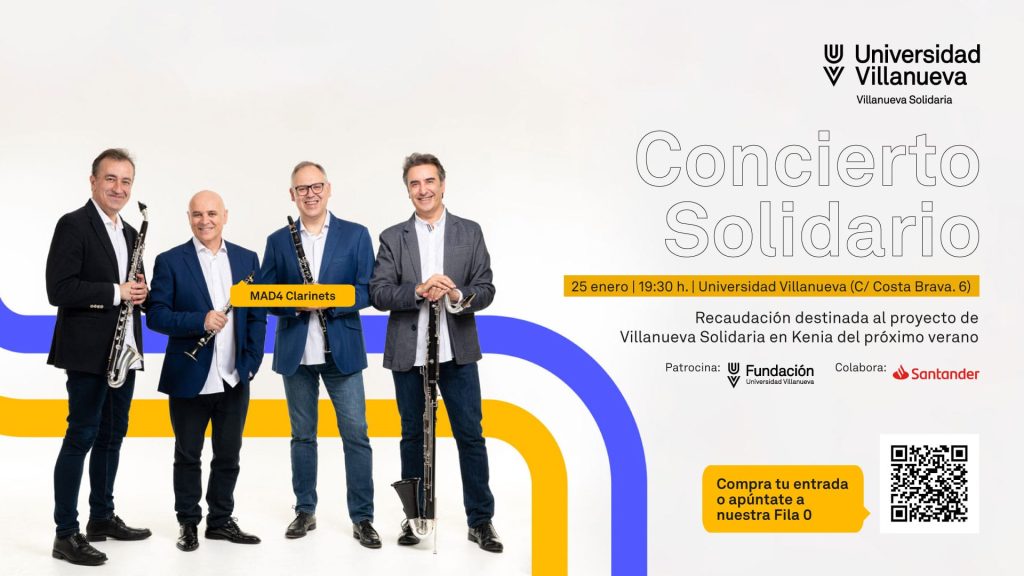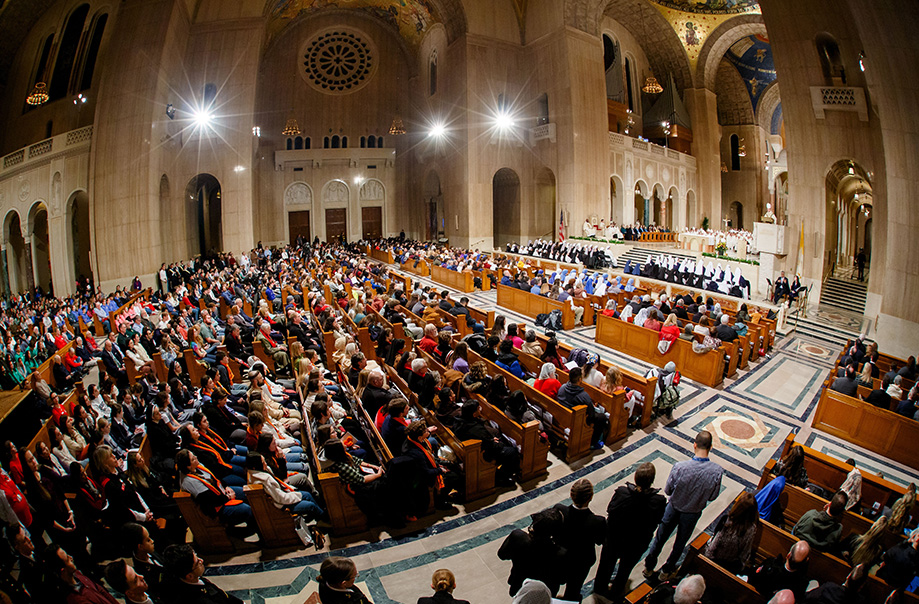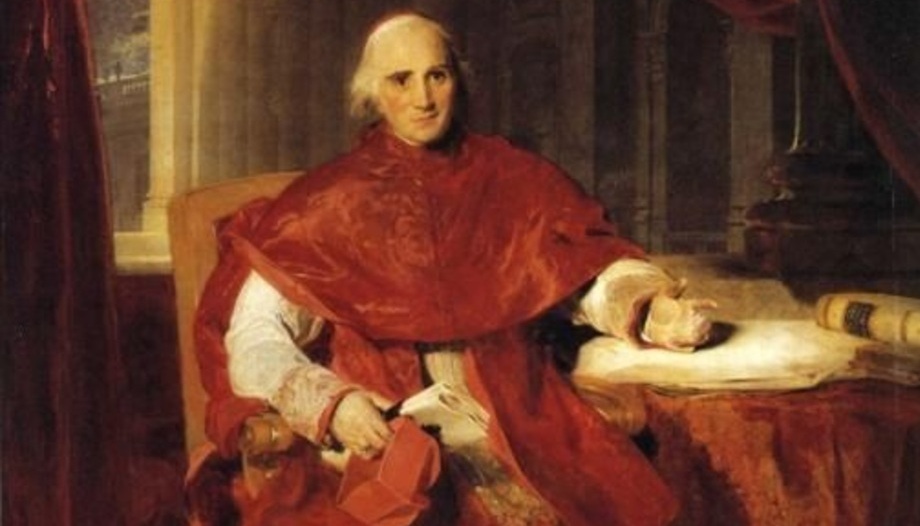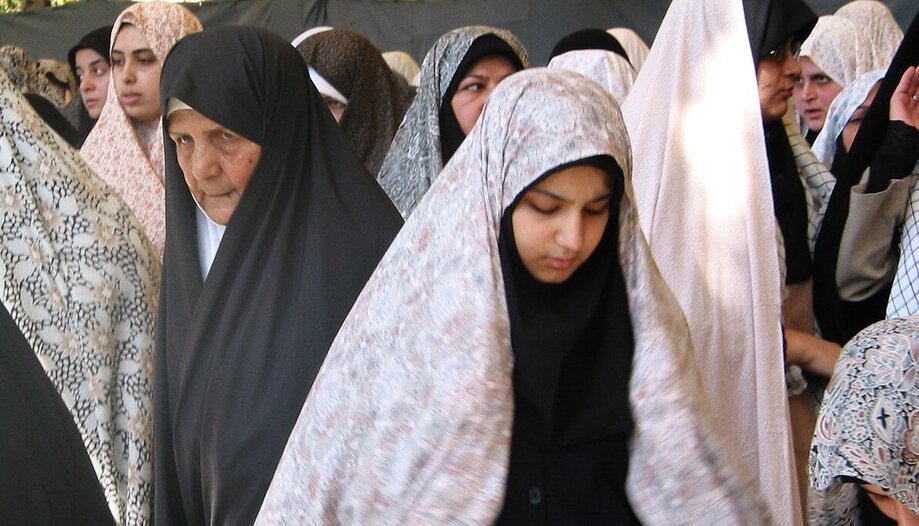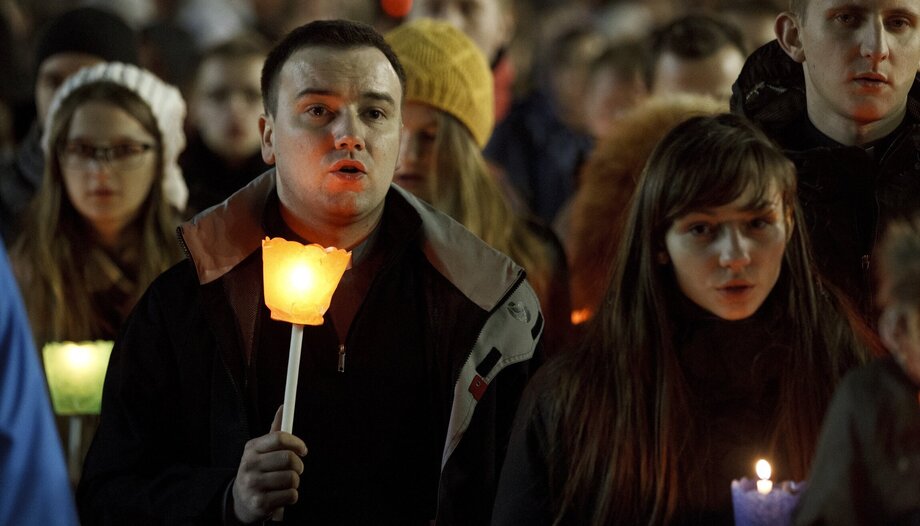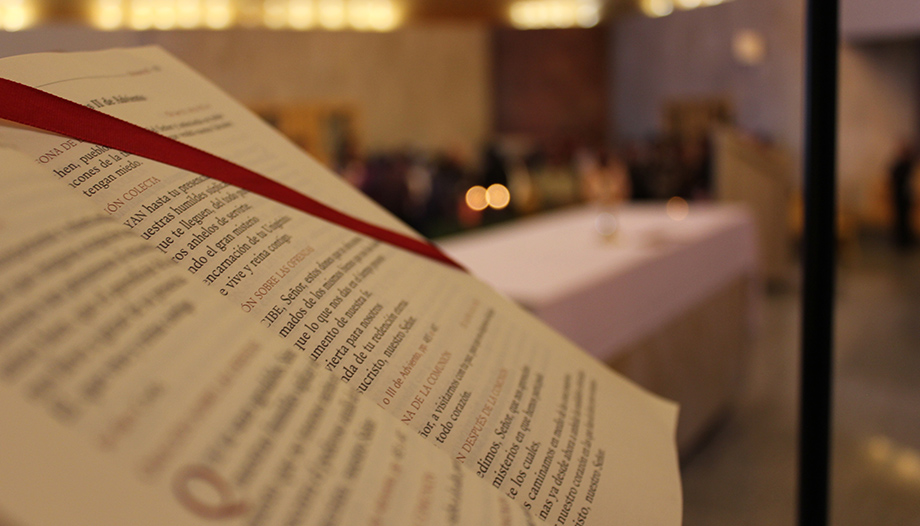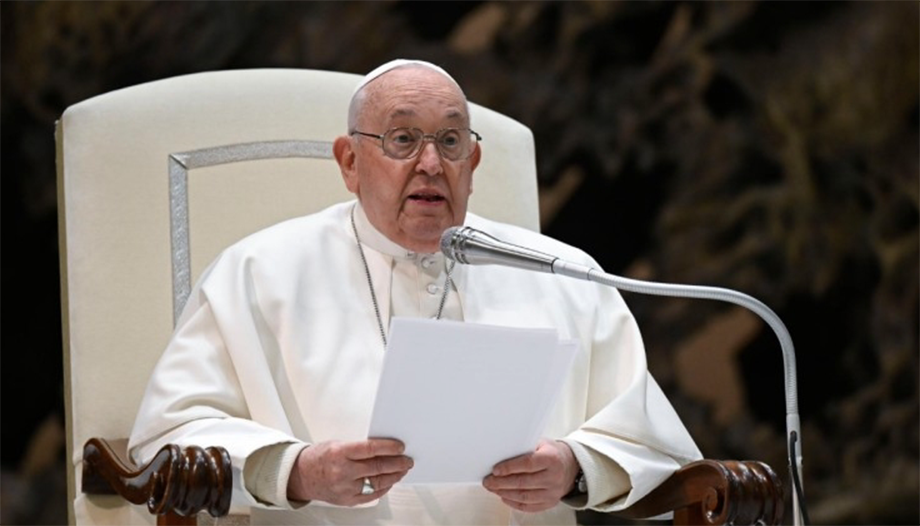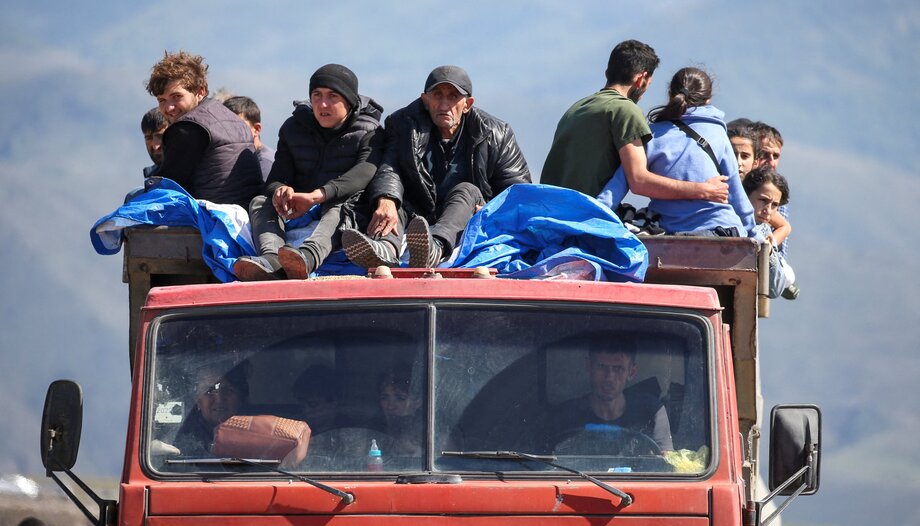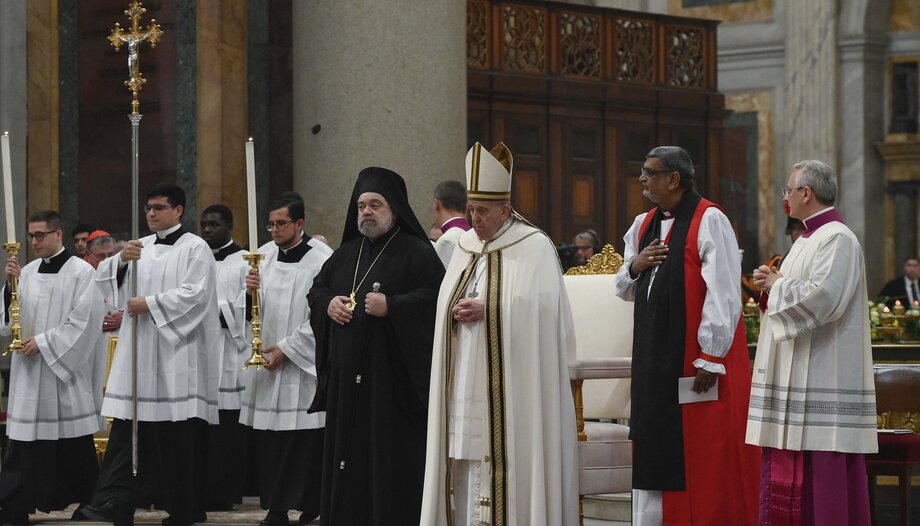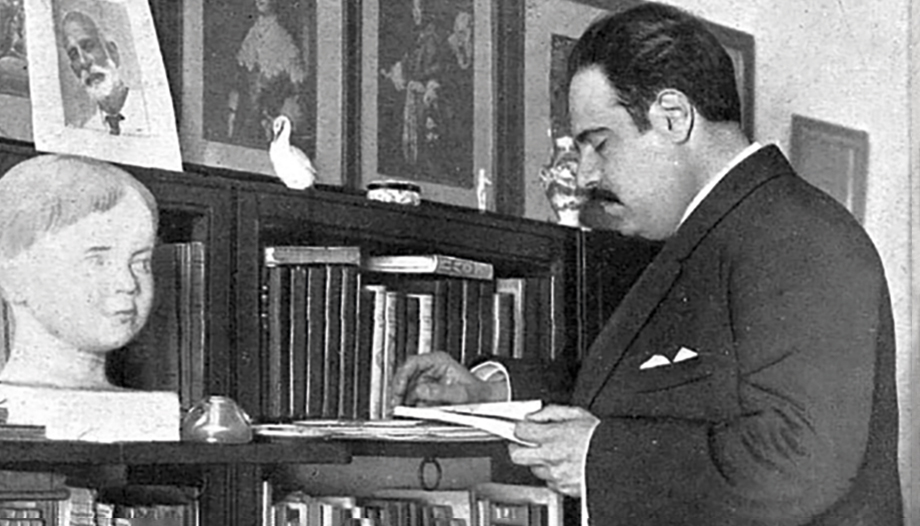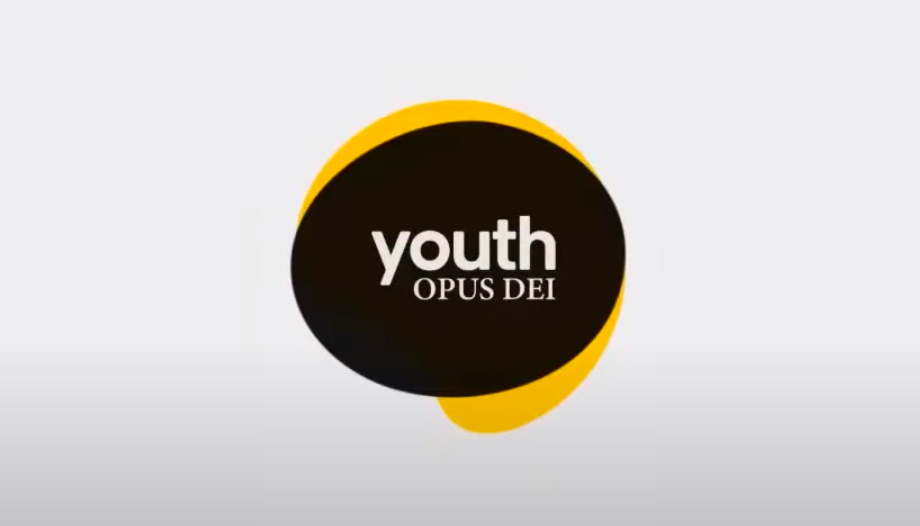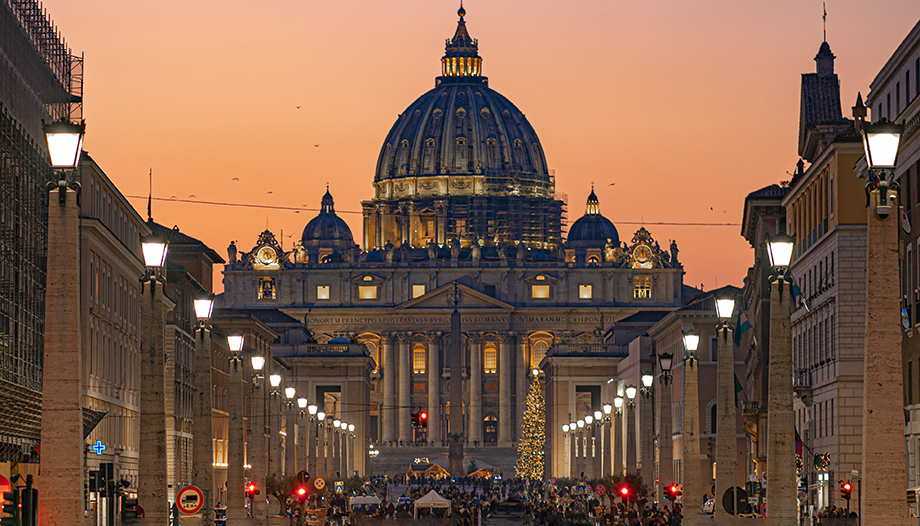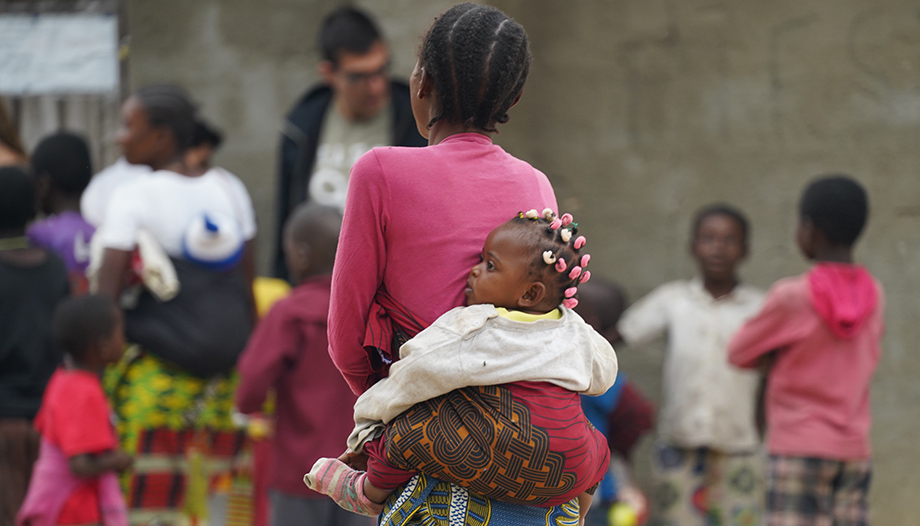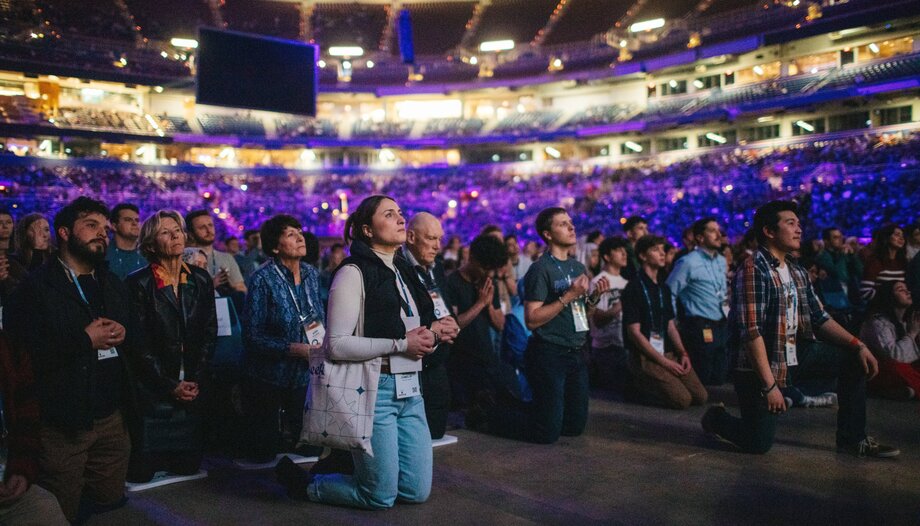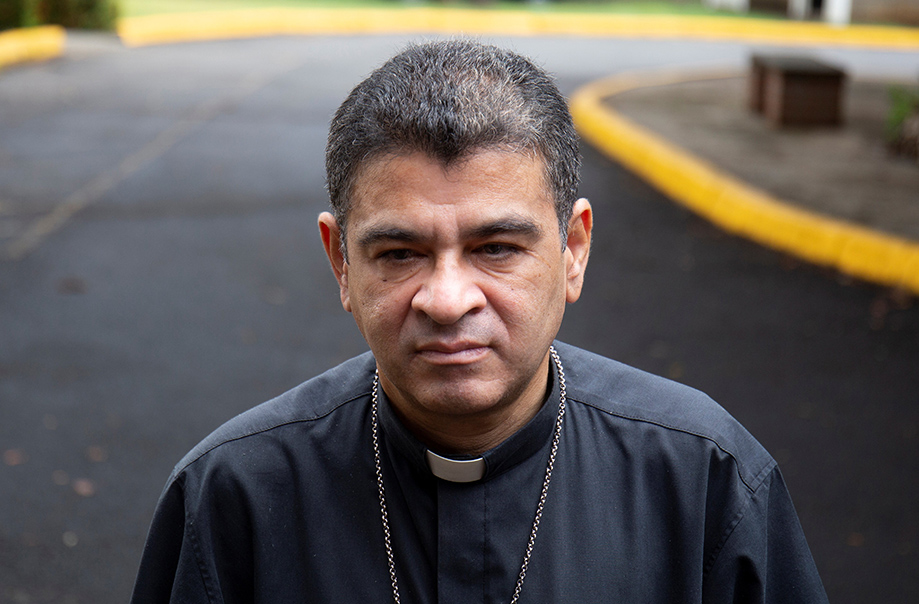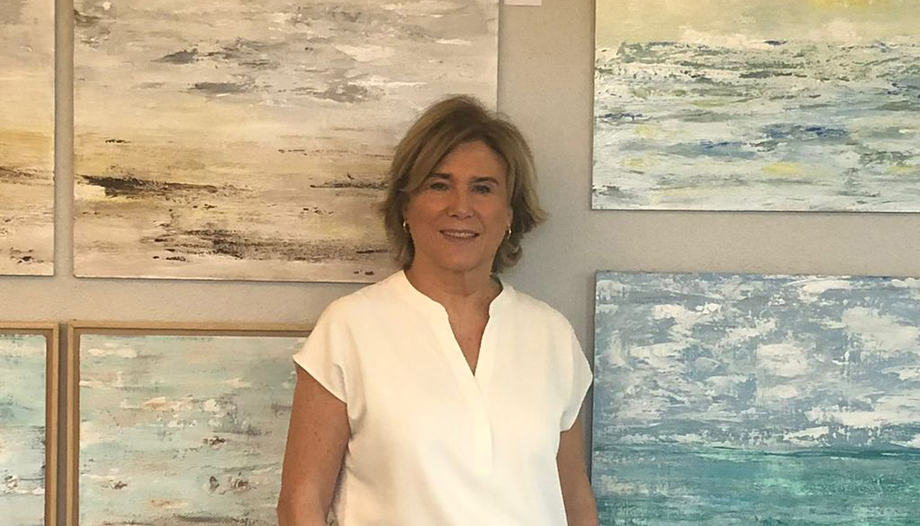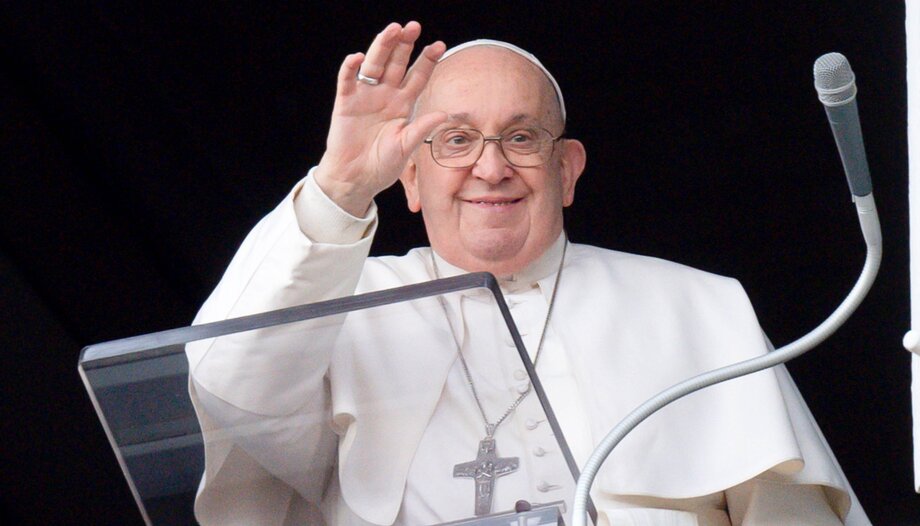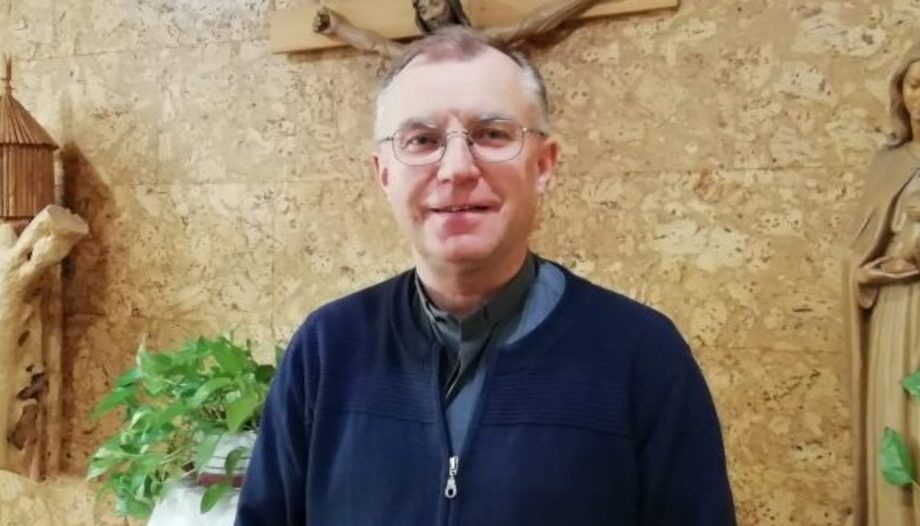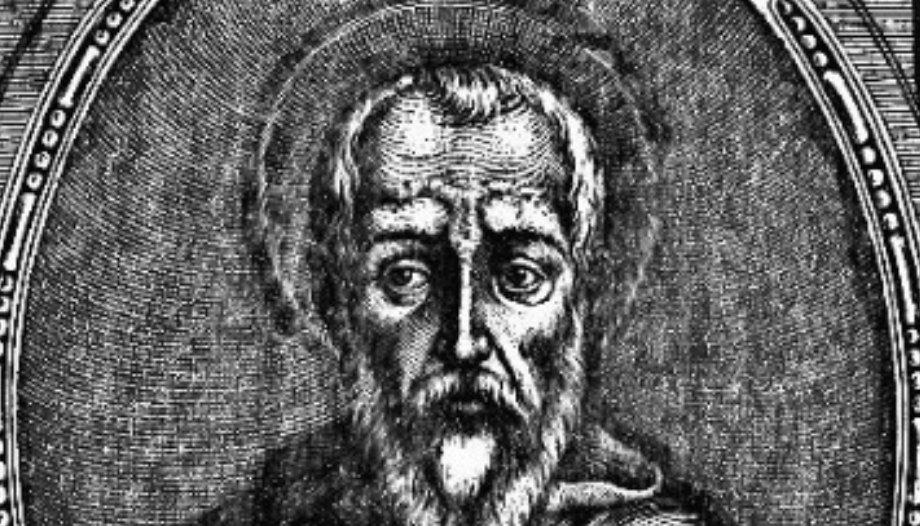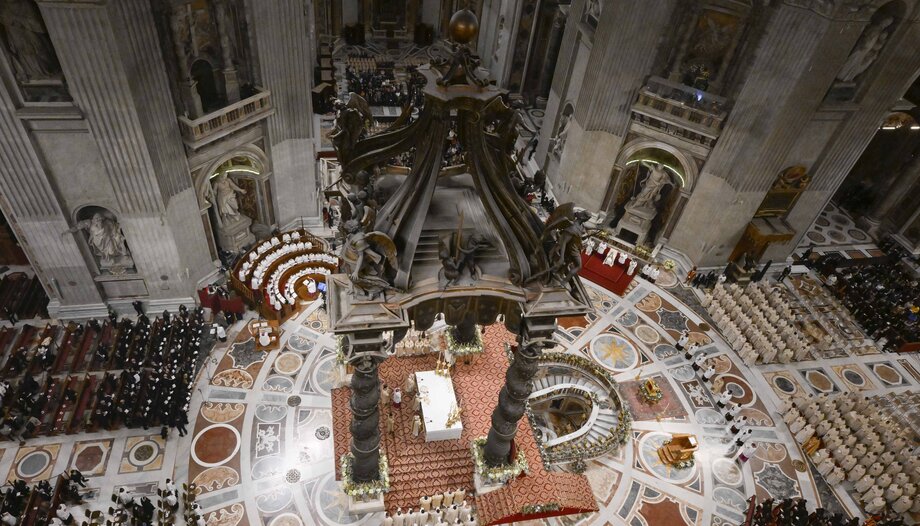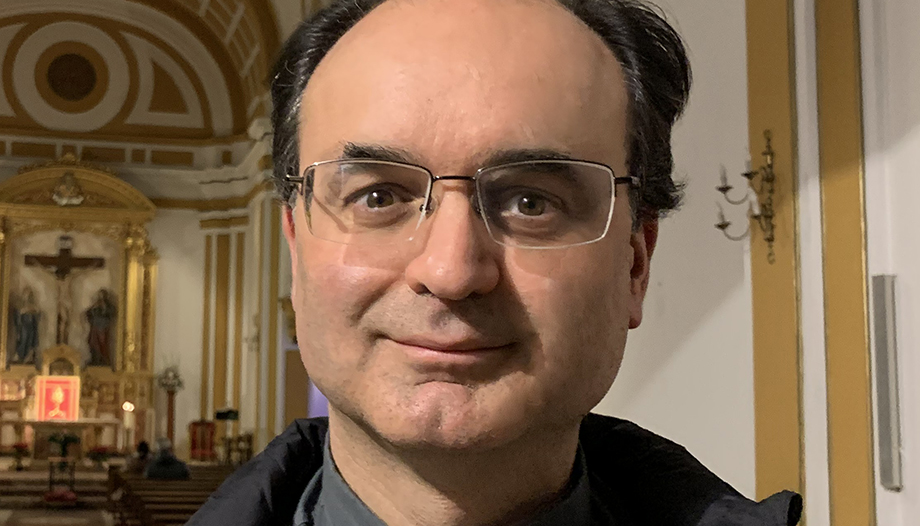The parish of Saint Raymond Nonnatus emerges without much fuss from among the buildings that surround the Puente de Vallecas in the capital of Spain. It is a simple temple, not particularly large, but in which there are always people. And there is for a simple reason: it is open.
From 7:30 a.m. to 9:00 p.m., dozens of people enter the parish at some time of the day: they pray, look, talk and, above all, feel welcomed.
Its parish priest, José Manuel Horcajo, a diocesan priest from Madrid, did not imagine, back in 2001 when he was ordained, that three years later he would end up in one of the most socioeconomically punished areas of the capital.
Since 2004 he has been the parish priest of this parish in Vallecas, whose history is intertwined with sportsmen -like the de Villota family- and saints. There the Blessed Álvaro del PortilloIn 1934, he was beaten with a wrench by some anti-Catholic radicals when he went to teach catechism to the children of the parish.
We spoke with Horcajo in a room above the San José soup kitchen, just across the street from the parish. In the room, where you can hear Caritas volunteers talking to beneficiaries, there are suitcases of clothes from some of the families who have been taken in. On the other side of the wall, a family school class is being held. People come up, go down, laugh, cry, ask for prayers and food, and always say thank you.
Horcajo captured some of the thousands of stories with which he lives in San Ramón in his book Crossing the bridge (2019). A second book was recently released Cut diamonds. If the first one was almost a "book of anecdotes", Cut diamonds is, in the words of its author "a book of incarnated spirituality. Of passion, death and resurrection". The stories it collects seem as distant as they are real and from his hand, we began to talk with the parish priest.
How did a book as "different" as Cut diamonds?
-The truth is that it took me longer to decide to write. Cut diamonds than in writing it, really. I asked myself, is it worth it? And I had doubts, but I saw that there aren't that many books on spirituality. incarnated in situations of passion.
This is a book of passion, death and resurrection, where we see the power of the Holy Spirit in shattered lives, personally or socially. Then you see it and you say, but the Gospel is the same: the Samaritan woman, with five husbands, isolated from the people, who went to the well when no one else was going and became an apostle of the people; Matthew, a tax collector out there lost... You see the characters and, in the end, it's the same thing.
I sincerely believe that today either the Church shows the strength that the Holy Spirit has in destroyed people, who can become apostles, or we believe that the Church can become apostles. this is only for the elite. For well-to-do people. Imagine that!
The Church is not something that works only when everything is right. When everything is wrong, then what? What happens here is the ordinary. From the poor must come many apostles and many saints! It has always been so in the life of the Church.
Church of the poor, Church of the rich, do we get lost in categorizations?
-Sometimes we run the risk of emphasizing one thing so much that we forget about the others. That can happen. I say, perhaps poetically, but I am convinced of it, that the Church has to evangelize the poor and that many middle and upper class people are also poor.
We are all poor! In some cases it is clearer, it is evident, because of their social deprivation and so on, but poverty, the anawin belong to every child of God. We are all poor before God. There are some poverties that are not seen and we have to discover them. To discover that we all depend on God.
When one discovers that he is poor, things change: he adopts a poor lifestyle, he is not ashamed to approach the poor - who may be the sick, the unpleasant one, the one I don't like -. We all have "personal peripheries": people we distance from our sensibility for whatever reason.
By recognizing oneself as poor, the person approaches any sensitivity, any situation, even if it seems distant. Some people who live very well in their villas are also poor and the Church helps them to discover their spiritual deficiencies.
From the poor must come many apostles and many saints! It has always been so in the life of the Church.
José Manuel Horcajo. Parish Priest of San Ramón Nonato (Madrid)
When you entered the seminary, did you imagine being here?
-No! Not at all! (laughs) I tell about it in the book. When I began my life as a priest, in a parish in Usera, they put me to work with immigrants and I thought that would end in about two years and I would go to what I considered a "normal parish" with children, families, young people ..... That I would dedicate myself to "my own thing": family ministry, marriages. I considered that these limiting or painful situations were for "specialists", for people who were dedicated to it and who liked it.
Then, the Lord brings you here, where you don't expect it, and obedience works. I have found in this place a richness that I knew.
Do we draw a dividing line between "social" charity and pastoral charity? Are both necessary for the response to God's calls?
-Charity is union. It is union with God and union with others and also pastoral union. Sometimes we live a kind of pastoral fragmentation, we then enter into technicalities, pastoral care "for", "pastoral care for Peruvians", "pastoral care for Senegalese", etc. What is this? The pastoral is that of the children of God.
My pastoral plan can be summed up in one line: open the parish all day long. When you open, people come. What people? Whoever God wants to bring. It is not a "ministry for immigrants", "for the poor" or "for people who have a hard time". It is a ministry for God's children who want to come.
In San Ramón Nonato the Blessed Sacrament is exposed, the sacraments are offered and people come. Whoever comes, I will attend to him whether he is rich, poor, an immigrant, or a doctor, I don't care... There is no sectorial pastoral care. I believe that this is not Catholic. The Catholic opens up and reaches out to everyone.
Charity leads you to reach out to those you never imagined: the sick, the elderly, the handicapped, etc. You don't know. You do not "choose them". This attitude generates a heart of pastoral charity, open to all, because it is open to Jesus Christ.
When one says "I am dedicated only to attend to this", he is selecting the measure of his charity, the measure of his heart. If you say "whatever God wants" then you have the measure of Christ, those that He wants to take you. This is how vocations arise, because you are open to whatever God wants, wealth or poverty, health or sickness... You are ready to give your life. If we dedicate ourselves only to a sector that we like, we will not be able to give our life.
It is striking that in this parish we talk to everyone about God. Many come with terrible stories. Do they really welcome this talk about God?
-We have just experienced Christmas. Actually, at Christmas we remember an event that begins with a fracture social: the Child is born in a doorway, apart... But he has a family to support.
Here the process is the same: we start with the social, we continue through the family to reach the spiritual. And it is done simultaneously. At the same time that we attend to the social urgency ("I have to eat", "I have to sleep", "I have to pay a bill", "I have to work"), the family problem is known: (how you live, with whom, what happens to you, what is your hope, what are your wounds) and, then, that pastoral attention enters ("You need God").
When you do this, this area of spiritual care is perfect. The problem I see in many places is that going from giving a bag of food to praying the rosary is like a somersault, because the family ministry is missing.
I understand that if there is no family ministry, it is very difficult for them to talk about God. There are parishes where the only place where they do not talk about God is the Caritas office, and many times it is due to the lack of family ministry. If there is a family ministry, everything is perfectly in tune, because people were born in a family, they want to form a family and their salvation is in the family. When you talk about family, the topic of God comes out very easily.
In addition to this, the poor are very believers. To me, when people tell me that they do not believe in God because there are those who go hungry, I reply "typical argument of the rich, the bourgeois, who see poverty on television".
The poor don't talk like that. When you are with the poor all day long and they tell you things like "Father, my father raped me, my mother abandoned me, I have been robbed, I have been left, nobody helps me... only God helps me", you are astonished, thinking "this person, with all the bad things he has gone through, is convinced that only God helps him".
The faith of the poor, who feel left out of the world, but accompanied by God, is amazing. Those who have everything often believe they are self-sufficient and "justify" that God does not exist because he does not help the poor.
If we dedicate ourselves only to a sector we like, we will not be able to devote our lives to it.
José Manuel Horcajo. Parish Priest of San Ramón Nonato (Madrid)
Do you ever get the feeling that you can't handle it all?
-Constantly. I constantly think to myself that there are people I can't help, because of the depth of their wounds, because of a very dramatic situation or a breakup..., I think, what can I tell them? The worst thing they can ask me to do is to give them advice. I don't have solutions, but God does. And I am convinced that God will help them. Surely through other means. I am convinced that God helps, I am a mere "observer". Although I have no answer, nor solutions most of the time, I am not worried, because God does.
One of the parish's best-known projects is the soup kitchen. What makes St. Joseph's soup kitchen different from other soup kitchens, for example, in the state?
-I have visited many soup kitchens all over Spain. I take the opportunity, if I go to one city or another, to see how they work, if we can improve something.
I realize that in many cases the problem is the same: people are fed but they do not know the people who go, nor their family situation, nor can they be given human, family or Christian food.
St. Joseph's is not a "soup kitchen that does a particular work" but is part of an "educational process" called the Catholic Church, which in itself has a soup kitchen. I invite you to a follow-up, to an accompaniment and I will feed you.
The dining room is part of something bigger, it fits in with the family and spiritual accompaniment. It is not a dining room that gives talks, it is a spirituality that has a dining room.
If anything characterizes today's society, it is the precariousness of the family, especially in the situations you deal with. How do you articulate this family accompaniment?
-Family ministry is the axis of the parish. At San Ramon we have four areas, so to speak. The first is the welcome which includes, for example, school support for minors, parenting school, affective and sexual education. These are proposals that people love, because they help a lot.
In addition, we have the area of convivencias or experiences. We have an experience for families, another one for couples (something similar to a marriage MOT) that we call Cana; we have weekend retreats, summer camps, pilgrimages, children's soccer, free time workshops. Diverse offers to have stronger experiences of integration.
The third area is formed by the more stable communitiesThe Fraternity of St. Joseph, the group of Angel Mothers, the group of engaged couples, young people, couples and seniors. They are communities where people can talk, integrate and live their lives.
The last area is that of healingThe Good Samaritan: psychologists, couples therapy, the Naím project with handicapped children. Now one has emerged, the Good Samaritan, which is made up of people who listen to others who come with many wounds. They are people who are prepared to listen to wounded people for 9 sessions, and in this process they also go to confession or receive the anointing of the sick.
In a parish there is a lot of talk about the parish community, but what is the parish community? Do you think there is such a parish community at St. Raymond's?
-I hope so, because if not, what a mess (laughs). What I have learned is that the parish community has to be made to the measure of God's heart, not to the measure of the parish priest's head.
Sometimes we pastors are tempted to identify that community with the people we meet with, the "councils", and that is not so. The parish community has to fit with God, not with the pastor. Within a parish community there are multiple groups: brotherhoods, confraternities, Neocatechumenal, of this or that movement..., which are heterogeneous but all converge in God.
This gives rise, effectively, to a heterogeneous community, a little chaotic at times, because it has not left the parameters of the parish priest. It is a varied community, very colorful, which also includes people who only go to Mass, those who will never go to a group but who feel like family. This is very noticeable when they leave Mass: if they stop, talk to each other, call each other..., if there is affection among them there is a parish community.
The "Comedor Social San José" is not a dining room that gives talks, it is a spirituality that has a dining room.
José Manuel Horcajo. Parish Priest of San Ramón Nonato (Madrid)




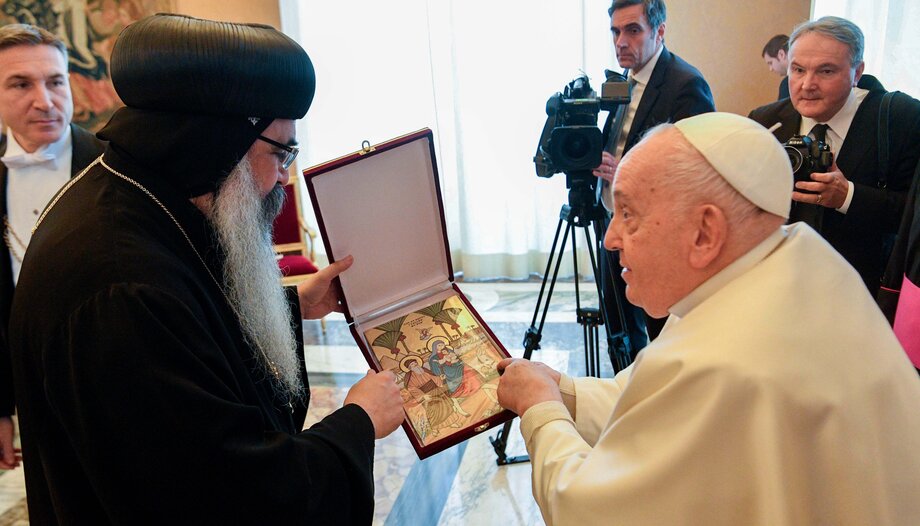
 Brother Matthew, prior of Taizé: "The road to unity is slow".
Brother Matthew, prior of Taizé: "The road to unity is slow".




